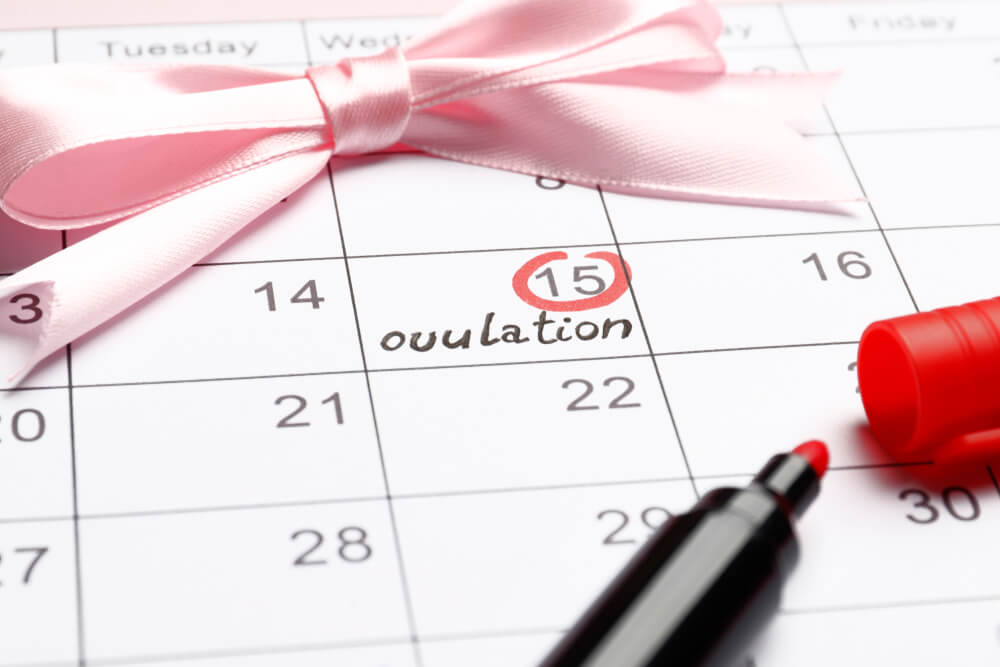If you’ve been trying for a baby with no success, it’s not unlikely that you suffer from anovulation. However, this condition is fairly common, and there are quite a few treatment options available nowadays. It is, of course, understandable that you might be feeling nervous, so let us discuss whether you can get pregnant without ovulating and what you can expect after your diagnosis.
What’s Anovulation and What Causes It?
As you’re probably already aware, your ovaries should release a mature egg during a menstrual cycle. When, however, this doesn’t happen, we call it anovulation. This basically means that you won’t be able to get pregnant during that given menstrual cycle, or at least not unless you decide on therapy.
There are a few common causes, but in general, we can say that anovulation happens when your body has problems stimulating the ovaries to produce a mature egg.
The most common cause of anovulation is polycystic ovary syndrome (PCOS). This disorder affects almost 10% of women of childbearing age. Another widely reported cause of anovulation is a disorder known as hypogonadotropic hypogonadism. If you get diagnosed with this disorder, your pituitary gland fails to produce enough FSH (follicle-stimulating hormone) and LH (luteinizing hormone) to stimulate ovulation.
What’s more, it’s also possible that you may very well suffer from ovarian insufficiency. This is a pretty typical cause of anovulation for women over the age of 40. It is, however, extremely important to note that many younger women are falling victim to this disorder as well. In such cases, the condition is referred to as premature ovarian failure. Sadly, for well over 90% of cases, the cause of the premature ovarian failure remains unknown. Scientists nowadays are suggesting that this disorder could be linked to genetic problems, like the Fragile X disorder or the Turner Syndrome.
Other times, anovulation might be caused by hyperprolactinemia (too high prolactin levels), or hypothyroidism (serious thyroid dysfunction). The possibility that you’ll suffer from anovulation sooner or later is made greater if you do not exercise very often, eat large amounts of unhealthy food, or are obese.
It’s also important to mention that most women skip ovulation while breastfeeding. Some even use breastfeeding as a birth control method in the first few months of a newborn’s life.

What Are the Symptoms of Anovulation?
When your fertile window gets thrown off balance due to anovulation, you may experience irregular periods with a lighter flow, or, on the contrary, your flows may become considerably heavier.
Other symptoms you might notice, especially if the primary cause of anovulation is PCOS, may include:
- Spotting between periods
- Weight gain
- Abnormal hair growth
- Low libido and decreased energy
- Mood swings
- Vaginal dryness
- Breast discharge when you’re not breastfeeding
- Night sweats and hot flashes
- Anger and irritability
Of course, it’s highly possible that you won’t experience all of the symptoms from the list above. You might notice some quite different symptoms instead. Every woman is unique, and that is why you should always make a gynecologist appointment if you suspect you might be dealing with anovulation. Your gyno will be able to diagnose you properly and find out what exactly is the cause of your problems.
Can You Get Pregnant Without Ovulating?
Untreated anovulation can make becoming pregnant quite difficult. Actually, it might be responsible for about 25% of cases of female infertility. Even if you do get your periods sometimes, their irregularity will make planning for a baby and calculating your fertile window pretty hard.
So, does this mean you’ll never get the chance to become a mother? Luckily, the answer is no. All you need is proper treatment since anovulation is manageable. In fact, the vast majority of women who receive proper medications can successfully conceive.
If you’re fretting whether or not you can get pregnant without ovulating, make sure to schedule an appointment with your gynecologist and have them plan your treatment. It doesn’t matter whether your case of anovulation was caused by PCOS, hypogonadotropic hypogonadism, or hyperprolactinemia since there are plenty of options available.
Unfortunately, your anovulation might be caused by ovarian failure, too. In such cases, there is a smaller chance of spontaneously conceiving. It’s especially low if you haven’t had a period for months, which would have made your fertile window practically nonexistent. Of course, proper medications can still vastly increase the odds; becoming pregnant will, nevertheless, prove a lot harder than if your anovulation was caused by any of the aforementioned disorders.
Can You Get Pregnant on Non-Fertile Days?
Now, if you’re wondering whether you can get pregnant on non-fertile days based on the lack of ovulation, the answer is no. On the other hand, the matter of getting pregnant on non-fertile days is quite different when you actually have regular ovulation. Mind you, the chances of that happening are very low, but they’re not complete zero, especially if your periods are not like clockwork. And can you get pregnant after ovulation? The answer is completely the same – it’s unlikely but not impossible.

What Are the Treatment Options?
Your gynecologist will be able to help you choose the right kind of treatment for you, so consider the following just the basic details of some of the options you might expect.
If you have PCOS, you will most likely be offered clomiphene citrate or letrozole. These drugs can help improve the probability of becoming pregnant, even if you’re nearing menopause.
In case you’re dealing with hyperprolactinemia, the treatment will be targeted at the tumors that produce prolactin. Its goal will be to reduce its production, thus increasing your chances of having a baby.
As you may know, the number of eggs in your body is fixed at birth, which means it may already be impossible to use your own. And if your main problem is ovarian insufficiency, the doctors will most likely suggest in vitro fertilization. However, keep in mind that you may have no other option than to use donor eggs.
Should You Call a Doctor?
There’s no reason to panic. If you believe that the symptoms you are currently experiencing may be caused by anovulation, simply schedule an appointment with your personal healthcare provider. Treating this disorder is possible and will drastically improve your chances of becoming pregnant.
You can always bring your symptoms to the doctor’s attention, but generally speaking, you’re at risk of anovulation if you’re 35 years old or younger and haven’t conceived after a year of trying. If you are over the age of 35, you should contact the doctors if you haven’t conceived after at least six months of trying. The doctors will be able to run proper diagnostic tests, understand your condition better, and thus offer you individual, personalized treatment options.
If you think you may have anovulation, feel free to contact your doctor, but do not lose hope. It’s true that lack of ovulation is a major cause of infertility, but thanks to the modern treatment options, the chances of you becoming pregnant and giving birth to a healthy child are still quite high. Feel free to reach out to us at University Park OBGYN and schedule an appointment with the best obstetric specialist in Florida, who will help you maintain and improve your gynecological health and provide you with the right care and services for your individual needs.


